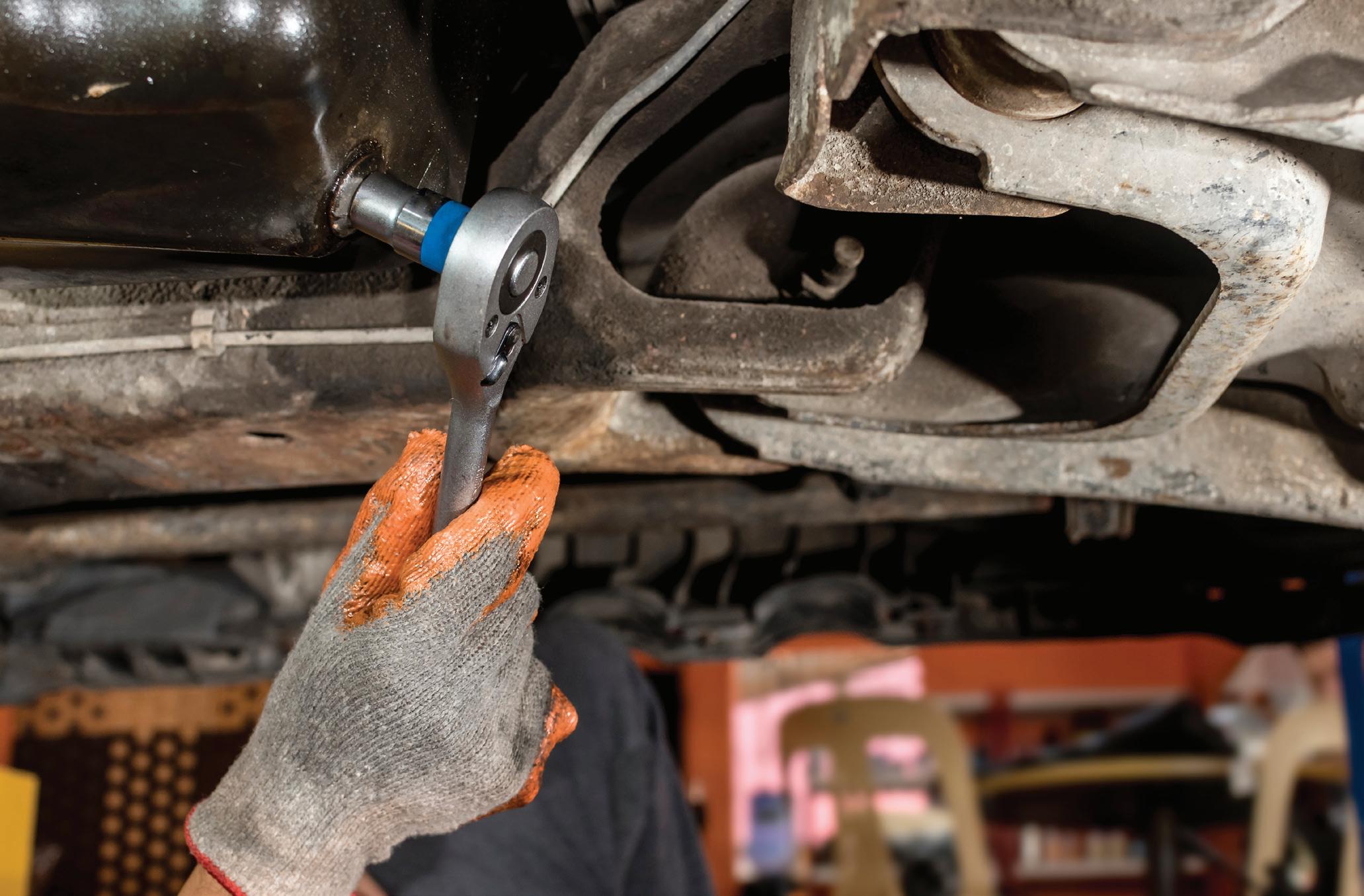
4 minute read
INDUSTRY INSIGHT

from NOLN - January 2023
by EndeavorBusinessMedia-VehicleRepairGroup
AN INVESTIGATION OF UNDERSTANDING
The Automotive Oil Change Association submitted a petition to the NHTSA, resulting in an investigation into Hyundai and Kia.
BY HANNA BUBSER
AUTOMOTIVE AFTERMARKET SERVICE solves problems. A customer presents an issue with their vehicle and the shop offers a solution. Most of the time, this is a process that works well. But sometimes, it’s not so simple.
In October 2022, the National Highway Traffic Safety Administration announced an investigation into Hyundai Motor Company and Kia Motor Company regarding oil drain pan assemblies. This investigation was spurred by a July 2022 petition from the Automotive Oil Change Association after three years of research.
Joanna Johnson is the policy advisor for the AOCA, and she says research revealed a problem with oil drain pan plugs falling out of vehicles specific to Hyundai Kia.
“This issue is … very unusual,” Johnson says. “It’s been 30 years researching complaints and consumer issues with automotive maintenance repair and we’ve never seen an issue like this one.”
Johnson says reports of this issue stem back to 2019.
“This is about oil drain pan plugs allegedly falling out after thousands of miles of driving and very often months after service [and] thousands of miles after driving, with no telltale leakage and no malfunction indicator lights going off,” Johnson says. “There is nothing to compare this situation to. It’s never happened with any other make or model cars, it’s only Hyundai/Kia.”
Define The Details Johnson says the research conducted by AOCA has included gathering case information from both operators and consumers and narrowing down the makes, models, engine type and the oil drain assembly pan type.
She says the AOCA checked background information including the mileage and time in-between incidents and whether there were any symptoms apparent. They also investigated how the OEM responded to the situations and they tested an example of a factory oil drain pan.
“The bottom line is, what we discovered is these oil drain pan assemblies from Hyundai/Kia are made of a very cheap stamped steel and there’s very little reinforcement at all on holding the plug in place other than a really tough coating of factory paint that paints the plug and the gasket together onto the pan,” Johnson says. “So much so that you can’t even see where the gasket is.”
Johnson says this can cause a camouflaged effect, and AOCA petition shows video of some do-it-yourself experts experiencing that exact problem. Additionally, Johnson says the petition to NHTSA outlines that Hyundai/Kia has not provided the service and repair information to consumers or the aftermarket regarding the oil drain pan issues in general.
This is just some of the content presented in the petition, which has support from the Auto Care Association, the Automotive Services Association, the Tire Industry of America and Service Station Dealers of America and Allied Trades. Johnson says supporting the research that AOCA is doing is part of the overall impact, and consumers and service providers can contribute.
“This is a situation where people have to work together,” Johnson says.
“If you have case information, send it to AOCA, send it to info@aoca.org because the research on the NHTSA side is ongoing now.”
Johnson says the AOCA has research support available to members of the association, and members have access to it anytime they need to see it. She says the AOCA wants to help consumers get the best service possible, and the service providers play a role in that.
“We really want to encourage people because this situation with the idea of oil drain plugs falling out thousands of miles after service is so bizarre that there has been a natural inclination to say, ‘Oh, I don’t want to talk about that it’s so weird.’ Somehow, they just feel like it’s their fault,” Johnson says. “Because historically, if a drain plug fell out a responsible business just automatically says, ‘Fine,’ they go for customer service first. It’s just that this case, we now know it is not the last service provider.”
Gather The Data Johnson explains that data collection keeps agencies like NHTSA informed about ongoing issues in the aftermarket, and this investigation could show the importance of giving agencies information that leads to action. It also provides the opportunity to educate, as many consumers do not know that they can report a safety defect to NHTSA online.
Johnson says consumers should get warranty denials in writing as well, as that is what helped the AOCA discover this defect. She says OEMs and OEM dealers were denying warranty coverage for customers without providing evidence to support that denial. Johnson says getting this information in writing can help protect service providers and their customers.
“The way to get past the majority of shenanigans is to require that you get the information in writing, then we can move forward,” Johnson says.
Johnson encourages service providers to learn more about joining the AOCA and spread awareness to their customers about reporting drain pan assembly problems and other engine malfunctions to NHTSA.
“People need to know you’ve got to get involved with AOCA’s research and have your customers file complaints with NHTSA and FTC because what we’re seeing here with this case … [is] this problem can be repeated with any other type of engine problem,” Johnson says. “We want to see everybody empowered and not continuing to suffer through this.”
To learn more, listen to Johnson’s interview on The NOLN Podcast at noln.net








